-
December 3, 2023 → Collective Fictions & Frictions: Imaginary Genealogies
→ Read more
With Shania Anand, we imagined our archive not as a dusty folder, but with the idea “to actually use and consume things, to keep them in, or bring them into, circulation, and to literally throw them forth (Latin: proicere), into a shared and distributed process that operates based on diffusion, not consolidation, through imagination, not memory, and towards creation, not preservation.“
-
December 2, 2023 → Who Are We #12 Collective Frictions and Fictions, Urbane Praxis Lobby & Uferstudios, Berlin
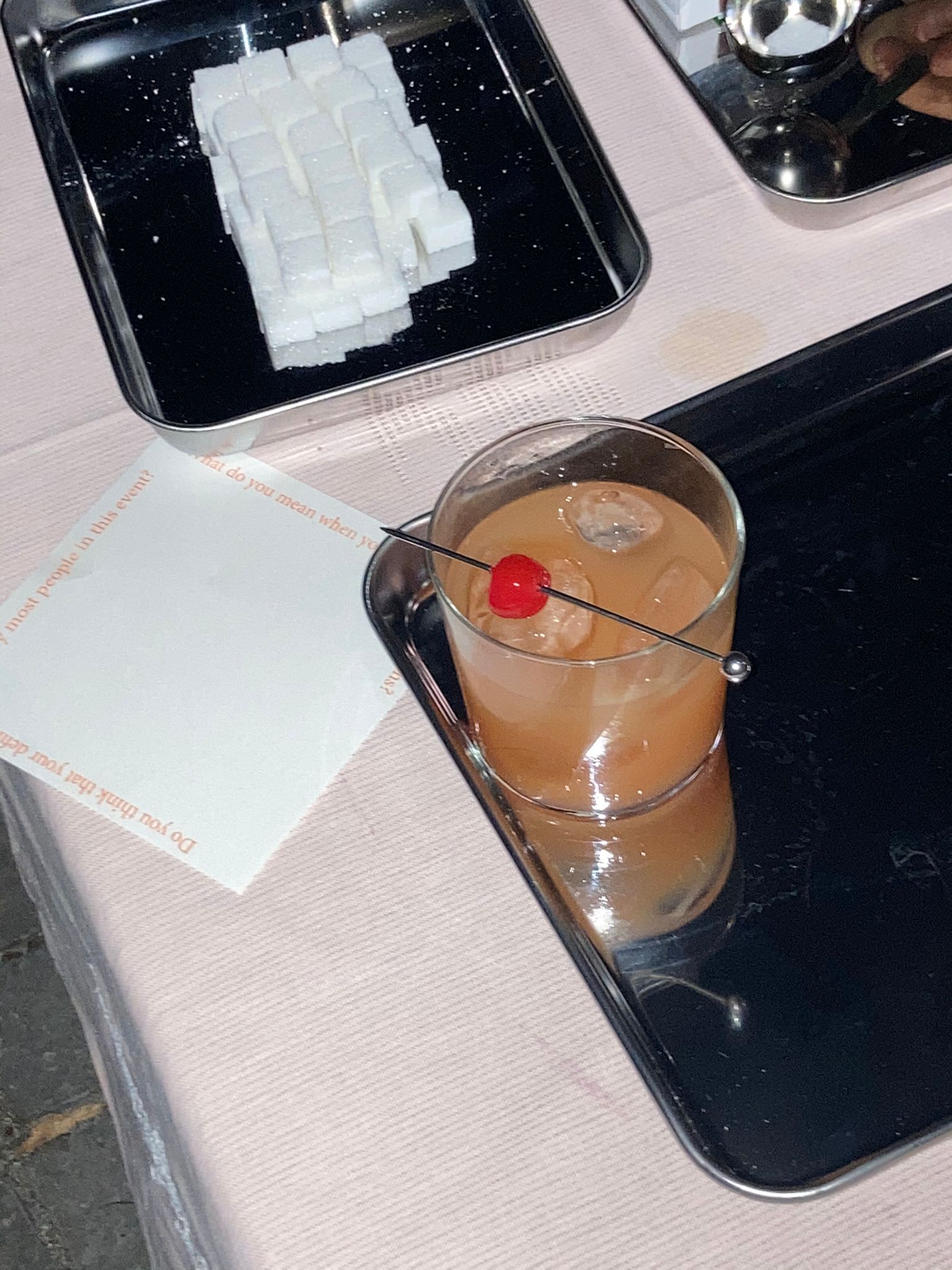 → Read more
→ Read more„If commoning has a meaning, it must be the production of ourselves as a common subject” — Federici, 2019
-
September 2, 2023 → Who Are We #11 Immune-boosting and Patriarchy-weakening Drinks and Tinctures, Haus des Wandels, Heinersdorf
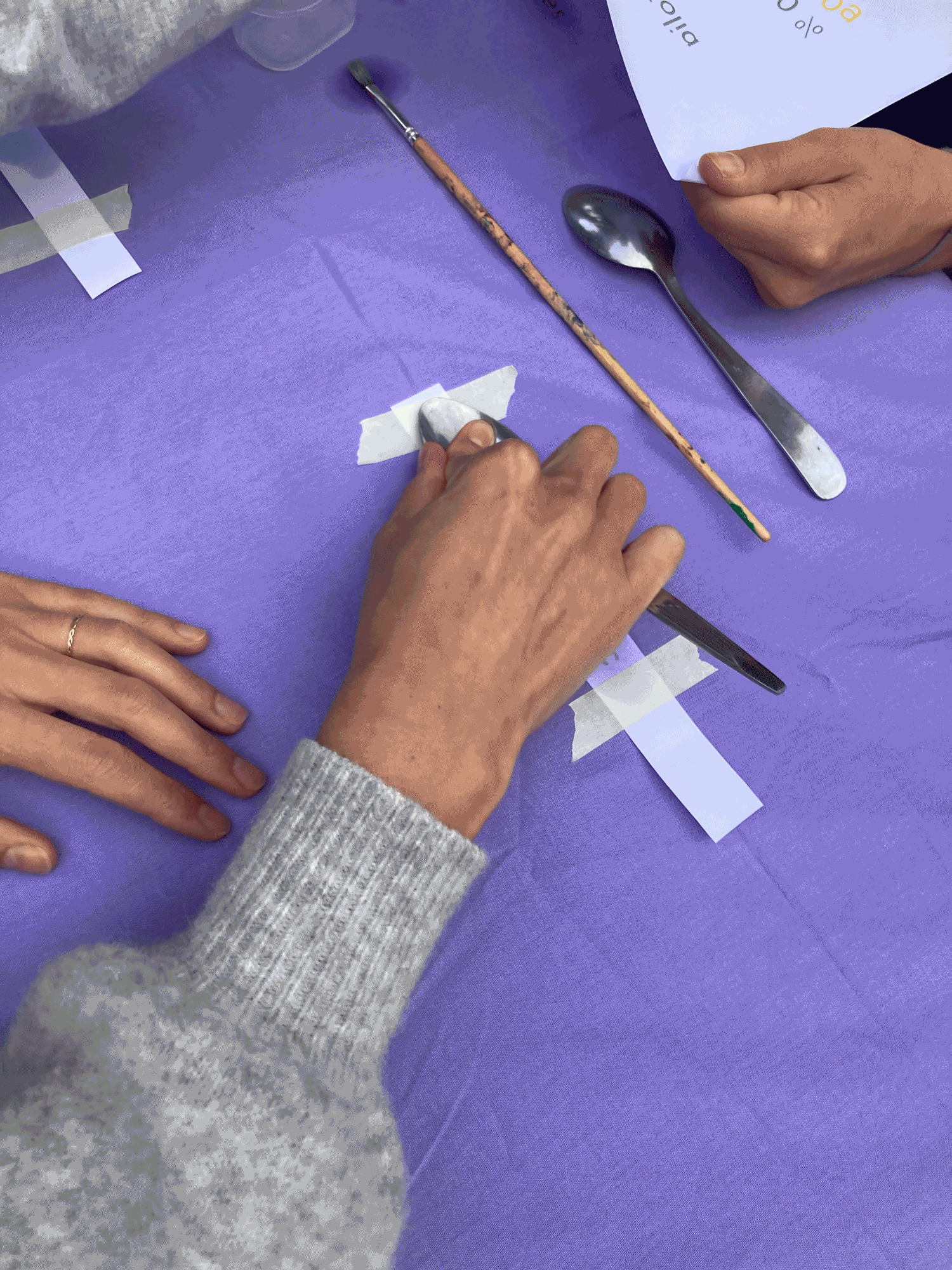 → Read more
→ Read more‘No medicinal herbs can grow in the dirt of capitalist society which can help cure capitalist anarchy.’ — Rosa Luxemburg
-
May 8, 2023 → Who Are We #9 Contribution Seminar ‘On Collective Work: Deconstructing Structures’, UdK Berlin
→ Read more
“There is no such thing as a structureless group” states Jo Freeman in her article ‘The Tyranny of Structurelessness’, “the idea becomes a smokescreen for the strong or the lucky to establish unquestioned hegemony over others”.
-
April 29, 2022 → Who Are We? #7 reading eco-feminism and the forest at Waldraum (Brücke-Museum), Berlin
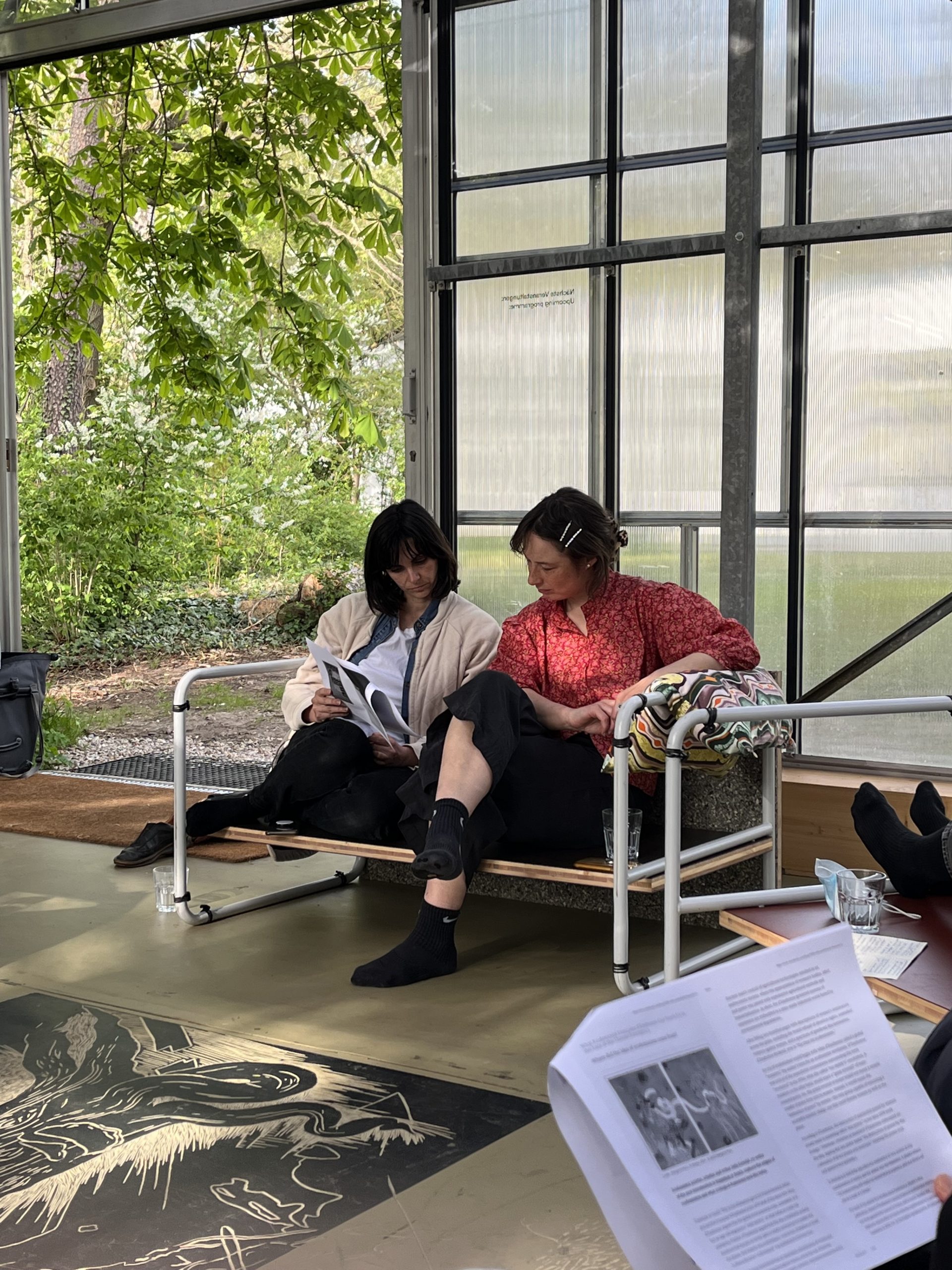 → Read more
→ Read moreNo common is possible unless we refuse to base our life and our reproduction on the suffering of others, unless we refuse to see ourselves as separate from them.
-
March 8, 2022 → Who Are We #6 Feminist Night Scapes: Walking is Weaving, Audio Night Walk, online
→ Read more
Wherever you are, whether you are wearing a warm coat or enjoying a fresh breeze, whether you are walking in daylight or darkness, if like me you are in Berlin. This walk is taking us through landscapes with different expressions of urbanity, there are many portraits to draw of this city. We pass through garden colonies, different streets, narrow and wide, cobbled, the canal, former horse stables, cemeteries, balconies waving peace flags. Along the way, we meet different kinds of creatures, bacteria, plants, small and large animals, including several humans, some are accompanied by dogs. Some are considered native, others invasive, some harmless, others dangerous, all of them sharing the same living space.
-
October 17, 2021 → Who Are We #5 Spot on Economies at PACT Zollverein
→ Read more
Deepening the practice of and research conducted within our Who Are We initiative, over the course of two weeks we had the possibility to stretch our tentacles in many directions; confronting the neo-liberal system based on scarcity with an activism of abundance (Valeria Graziano and Giulia Palladini); staging a Common Wallet – imagining how to unlearn negative associations between money, precarity and taboos, and replace them with practices of radical trust…
-
October 1, 2021 → Who Are We #4 Roaming Workshops: Approches to Decolonial Work During a Pandemic, Minor Cosmopolitanisms, University of Potsdam
→ Read more
In autumn 2021 Who Are We participated in a series of events convened by the Research Training Group Minor Cosmopolitanisms at the University of Potsdam entitled ‘Approaches to Decolonial Work During a Pandemic’ that deals with a postcolonial approach to ecologies, inequalities, bodies, indigeneities and alternative genealogies.
-
June 9, 2021 → Who Are We #3 ¥€$! Sustainable, Healthy and Fair Working Conditions at Dragonerareal w/ Guerilla Architects
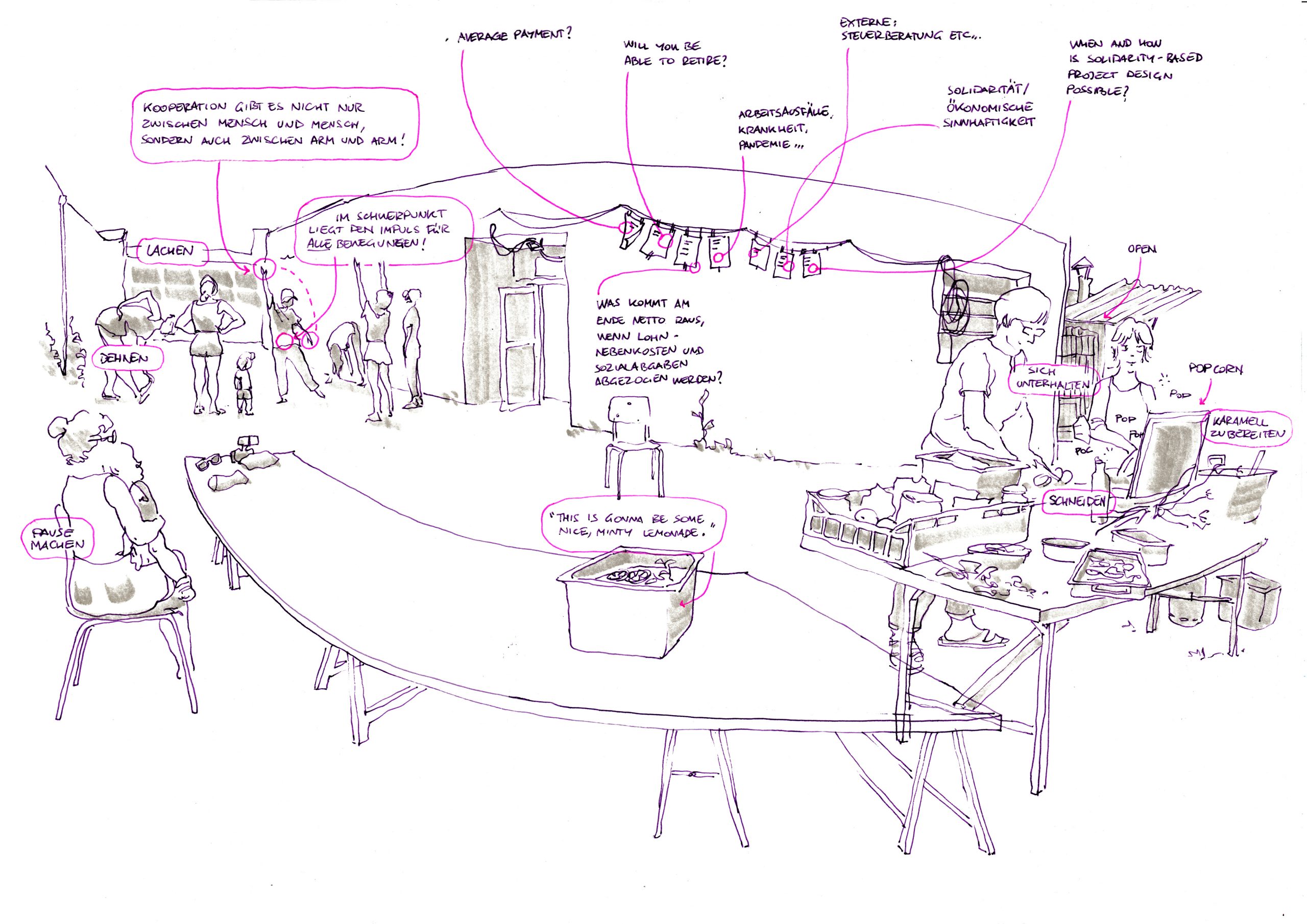 → Read more
→ Read moreTo trigger a discussion on sustainable, healthy and fair working conditions Who Are We spoke to Magdalena Ziomek, managing director of the cooperative for freelancers – SMartDE eG, and Anna Mareike Holtz from Kulturbüro ehrliche Arbeit. We would like to pragmatically shed light on cooperative and solidary working principles and legal forms, but also on how to organise and discuss collaborative work more politically.
-
March 3, 2021 → Who Are We #2 Hard C* Times: Working Cultures Based on Non-Violence and Solidarity on Tempelhofer Feld
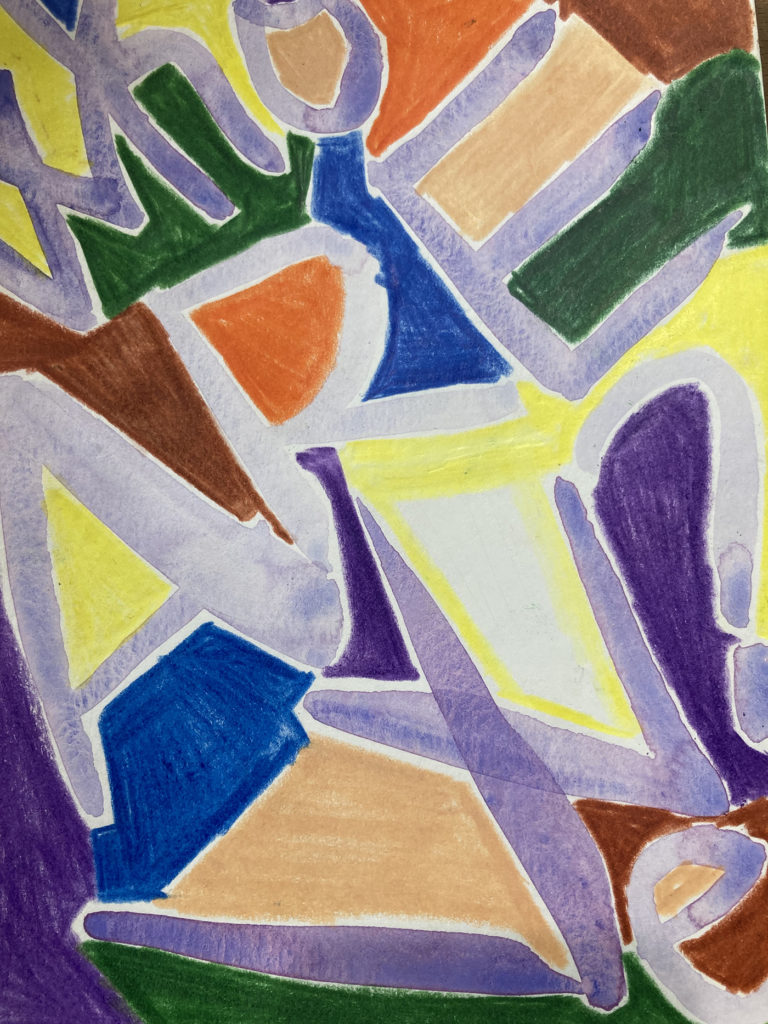 → Read more
→ Read moreCultivating the small seed that we planted, a seed of a different working culture, based on non-violent communication and solidarity, on joyful self-criticism, on care for (our) bodies and minds…
-
December 2, 2020 → Who Are We #1 Launch: On Caring Activism and Intersectional Perspectives in Curating at Haus der Statistik & online w/ Zuloark
→ Read more
With a nod to artist Mierle Ukeles Laederman’s 1969 Maintenance Manifesto with the much quoted question of “After the revolution, who’s going to pick up the garbage on Monday morning?”, the following questions can be asked: Who writes e-mails over the weekend? Who is active on twitter? Who keeps the facebook account alive? Who cleans the space for the next meeting? Who organizes timelines and resources? Who writes the grant applications?
